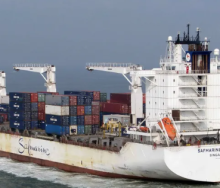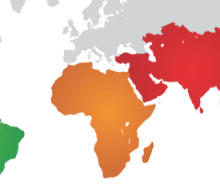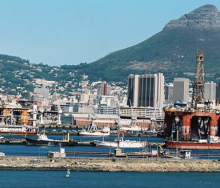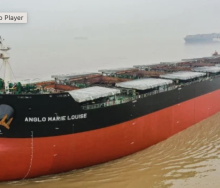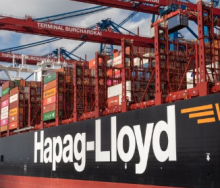Transnet is feeling the heat at the moment over last week’s Container Port Performance Index (CPPI), scoring South Africa’s ports at the bottom of the barrel of 405 ports gaged worldwide, and inclement weather isn’t making things any easier.
According to the latest Cargo Movement Update (CMU) compiled by Business Unity SA and the South African Association of Freight Forwarders, week-on-week container handling capacity at the country’s ports slipped from 8 244 to 5 737 daily last week.
The 30.3% drop in throughput capacity was mainly due to extreme conditions and equipment breakdowns which “severely influenced port operations”, the update says.
“The Port of Durban was closed for incomings earlier this week due to adverse weather, while strong winds and vessel ranging hampered operations at our Eastern Cape Ports for parts of the week.
“On the wider container front, capacity issues rippled across the global sea freight industry.
“The container shipping market is experiencing an intensified capacity shortage,” the CMU reports.
“Notably, Maersk has ceased operations of a trans-Pacific service merely eight weeks after its inauguration.
“Concurrently, nearly 50% of westbound Asia-Europe sailings have not adhered to their scheduled departure times, exacerbated by ongoing port congestion in Southeast Asian hubs.”
The CMU also remarks that amid all the capacity challenges, “global freight rates have continued their upward trajectory for the ninth consecutive week, registering a 13% increase last week”.
“Since the end of March, the Shanghai Containerized Freight Index has accrued a 76% increase, with no indications of any decline in the immediate future. Furthermore, the containership charter market remains robust, with rates increasing by 10% last week.”
While ports, service providers and shippers are facing manifold challenges across the global supply chain sector, public sector ocean freight executives in South Africa and further afield have also heaped scorn on the Word Bank’s latest CPPI.
Locally, a logistics principal who requested anonimity intimated that the CPPIdoesn’t compare apples with apples, preferring instead to lump together various ports with widely different size and service-related dynamics.
The World Bank’s data metrics are questionable, especially on the basis of the institution not guaranteeing the accuracy of its own research.
Apart from the local perspective, the Port of Djibouti has also slated the Index, saying the latest CPPI findings “do not reflect the tangible reality on the ground”. (Please see report: Djibouti rejects World Bank port ranking index.)



